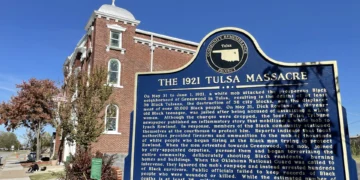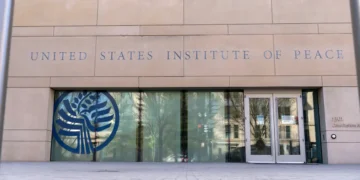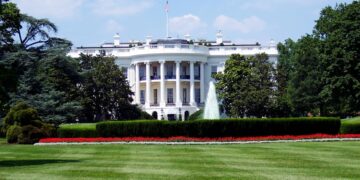Nov 30, 2024 Story by: Editor
PLACER COUNTY, Calif. — Nestled in the rural landscape of Placer County, Emigrant Gap offers breathtaking greenery, dense forests, and stunning mountain vistas. However, despite its natural allure, not everyone feels welcome or safe in these outdoor spaces.
For many Black Americans, activities such as camping, hiking, and birdwatching have been tainted by experiences of racism and exclusion. Jade Stevens, a California resident, aims to change this narrative by founding the 40-Acre Conservation League — the state’s first Black-led land conservancy. The organization focuses on conserving land while promoting inclusivity, ensuring all communities can enjoy the great outdoors.
Stevens envisions the conservancy as a means to bridge the “nature gap” or “adventure gap,” terms that highlight the underrepresentation of people of color, particularly Black individuals, in natural spaces.
In August 2023, the 40-Acre Conservation League achieved a historic milestone when the Wildlife Conservation Board awarded it millions of dollars to acquire 650 acres of wilderness in Emigrant Gap. Located midway between Sacramento and Lake Tahoe, Stevens views this acquisition as an opportunity to boost tourism and recreation while addressing disparities.
By owning conservation land instead of merely managing it, Stevens believes it sends a powerful message about accessibility for people of color. “There have been a lot of barriers that have prevented people from thinking about what owning land means,” Stevens explained. “But we know that land ownership is the main thing that gives generational wealth and investment into the outdoors.”
A Legacy of Exclusion
The exclusion of people of color from outdoor spaces is deeply rooted in U.S. history. A report titled The Nature Gap: Confronting Racial and Economic Disparities in the Destruction and Protection of Nature in America highlights how systemic segregation has historically limited access to public lands and natural areas for people of color.
“There have been so many stories, from being heckled for having a barbecue in a public park to a gentleman in New York City who was just birdwatching,” said Stevens.
One such incident involved Christian Cooper, a Black birdwatcher in New York’s Central Park. In 2020, Cooper asked a white woman to leash her dog, as required by park rules. When she refused, Cooper began recording the interaction. The woman called 911, falsely claiming Cooper was threatening her. The video went viral, sparking outrage and reigniting conversations about racial bias in outdoor spaces.
Reflecting on the incident, Cooper said, “When that incident happened to me, I was not necessarily surprised. We live in a society that is rife with all kinds of racial bias — conscious or unconscious, long-standing or hidden. It almost seems baked into our society.”
Reclaiming Space and History
The name of Stevens’ organization, the 40 Acre Conservation League, is inspired by the unfulfilled promise of “40 acres and a mule,” a Reconstruction-era proposal to grant land to freed Black individuals after the Civil War. “We know that promise was never fulfilled, and it continued on for years and years,” Stevens said.
This concept ties into California’s broader reparations efforts, addressing how discriminatory laws and property seizures have contributed to enduring disparities in wealth, education, and health for Black Californians. Land ownership is central to these reparations, though progress has been mixed. In September 2024, Governor Gavin Newsom vetoed a bill that would have helped Black families reclaim or receive compensation for unjustly taken property.
Beyond land conservation, Stevens sees reclaiming space as a way to build a lasting legacy for the Black community. Supported by initiatives like California’s 30×30 Initiative, which aims to conserve 30% of the state’s land and waters by 2030, the 40 Acre Conservation League is not only preserving wilderness but also reshaping narratives of exclusion.
“Now that we’ve been able to acquire the land, our goal is to really leave breadcrumbs for others to follow,” Stevens said. “So we’re no longer the only ones in this space.” Source: abc 10
















